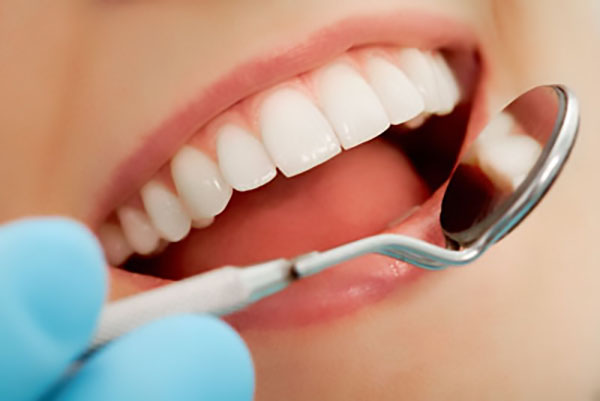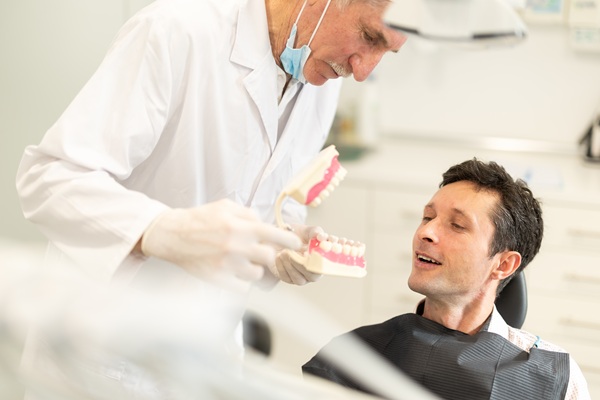Gum Disease: 5 Things You Need to Know

Despite the prevalence of gum disease, not every patient is aware of the risks and implications of this condition. By acquiring enough information about this ailment, you will be able to take the appropriate measures to curb and prevent its occurrence.
In this article, you will learn about the important facts everyone needs to know about gum disease.
5 Important facts about gum disease
1. Gum disease is quite rampant
Gum disease, otherwise known as periodontal disease, has been described by many health experts as the “silent ailment" because its symptoms are not usually apparent until the disease has advanced. According to statistics from the Centers for Disease Control, up to 47 percent of adults age 30 and above have some type of gum disease. Cross over to 65 years of age, and the percentage of adults with gum disease increases to 70.
The condition is more prevalent in men than women, with a little over 56 percent of all instances. Due to the prevalence of this oral health condition, it is necessary to know the effects, symptoms, and ways to prevent the disease.
2. Gum disease can have adverse effects on your overall health
Although the impact of gum disease on oral health is visible, it also has its repercussions on your general well-being. Multiple studies have linked gum disease to a higher risk of heart disease, respiratory illness, diabetes, stroke and complications during pregnancy. According to the American Association of Periodontology, the repercussions of this disease on the health may be due to the associated inflammation.
3. It comes with some warning signs
Although gum disease can go undetected for a while, you can watch out for certain signs and symptoms, including bleeding gums, inflamed gums, receding gum line, halitosis (bad breath), tooth sensitivity, loose teeth, painful chewing and changes in tooth alignment. If you have a dental restoration such as dentures, you may start noticing them fitting more loosely.
4. Gum disease is aggravated by certain factors
To prevent periodontal diseases, you need to be aware of your risk level for the illness. The following factors can place you at a higher risk of compromising your gum health:
- Smoking or using tobacco products
- A family history of gum diseases
- Aged 65 and above
- Chronic stress
- Teeth grinding (bruxism)
- Medications for certain conditions (antidepressants, heart meds, some oral contraceptives)
- Chronic illnesses such as cardiovascular disease, diabetes and rheumatoid arthritis
- Consuming a low-nutrient diet
Although these factors play a part, it does not mean that you will develop gum diseases. Fortunately, you can prevent its occurrence by taking specific precautions.
5. Gum disease is preventable
Despite the prevalence of the condition, it can be prevented. The most important step of all is maintaining an excellent oral care routine. This means brushing your teeth at least twice daily, flossing and visiting the dental office for regular checkups. You could also make some lifestyle changes like quitting smoking. Vitamins C and D and calcium have been known to strengthen the teeth and gums against periodontitis.
Final note
A regular dental checkup is the most effective way to ensure the early detection, treatment and prevention of gum disease. If you start noticing any of the above symptoms, make sure to contact your dental office immediately.
Request an appointment here: https://www.yourhuntsvilledentist.com or call René A. Talbot, DDS at (256) 382-6690 for an appointment in our Huntsville office.
Check out what others are saying about our services on Yelp: Read our Yelp reviews.
Recent Posts
Choosing the best dentist is essential for maintaining your oral health. However, finding the right dentist for you can feel overwhelming with so many options available. Fortunately, by considering a few key factors and gathering some key information, you can identify a trustworthy dental professional who meets your needs.Convenience plays a significant role in choosing…
Endodontics treatment, which is the treatment of the tooth's inner pulp and structures, is one of the most efficient ways to save decaying or damaged teeth. Many individuals, however, get anxious when they learn they need it. This is mostly due to the widespread misconception that undergoing endodontic treatment is unpleasant. It is incorrect —…
Patients often search for root canal treatment when a tooth aches from deep decay, a crack, or inflamed pulp tissue. This therapy removes irritated nerve tissue, disinfects the canal space, and seals the tooth to prevent reinfection. By preserving the natural root, the procedure maintains bite balance and chewing strength. With careful planning, a restored…
Looking for information on periodontic care? Continue reading to learn about situations when a dentist might recommend periodontics. Periodontal disease, commonly known as gum disease, is a serious oral health issue that can result in severe oral infections and tooth loss. Periodontal disease may be contained and handled with the appropriate professional treatment.Gum disease can…


